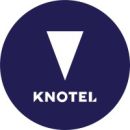New York City is notorious for its crowded, heated, and brutal real estate market, so it’s no surprise that it is becoming a thriving nexus of tech innovation aimed at streamlining the process of finding a place to live.
Top Real Estate Startups in NYC
- Landis
- Domio
- Better.com
- Knotel
- Compass
- VTS
- Reonomy
- Managed by Q
- Common
These NYC real estate tech startups work in different areas and serve different customers, but all are changing the way we work, collaborate, and live, making real estate less scary and more exciting for all parties involved.
Founded in 2019, Valon is a tech-enabled residential mortgage servicer and insurance provider, aiming to make homeownership more accessible. As a digital-first Fannie Mae and Freddie Mac-approved lender, Valon offers tailored loan options and affordable insurance coverage through an online process. By working to streamline outdated practices, the company works to help customers save both time and money.
Bilt Rewards offers a unique loyalty program that allows renters to earn points for paying rent, which can be redeemed for travel, shopping, fitness and even rent payments or a future home down payment. Renters can also use Bilt’s branded MasterCard to access the same rewards while improving their credit, even if they don't reside in one of the two million participating properties.
Findigs is a proptech company offering a software platform that’s meant to support faster decisions on rental and lease applications, while also preventing fraud. The company’s technology quickly verifies an applicant’s employment, income and credit as well as identifies any criminal or eviction history, with the goal of enhancing productivity and accuracy for property management teams.
Mint House takes the pain out of finding a place to stay, offering premium furnished apartments in major cities. Its rentals come with luxury amenities like Frette linens, Casper mattresses and free international phone service. Occupying the market space between hotel and short-term rental, Mint House says it caters to business travelers and is priced comparably to better mid-grade hotels.
Landis bridges the gap between renting properties and becoming a homeowner by acting as an intermediary purchaser. By purchasing with Landis, users are able to rent and live in a home for an entire year before taking over the mortgage payments. Landis puts a portion of the rent payments towards a down payment on the property, which allows purchasers to make a swift and more comfortable transition into making monthly mortgage payments.
Ribbon is a real estate technology company that partners with realtors and homeowners to help them buy or sell homes with more flexibility than traditional methods. The home-buying and selling processes are complicated and stressful. Ribbon aims to make home ownership and home equity more easily achievable for regular people, implementing a web platform that guides users in getting connected with experienced agents and lenders who can assist in the process.
Better simplifies the home-buying process by providing access to loans and agents without making a buyer jump through hoops. Operating on a model of “radical transparency,” Better agents take no commission from purchasers while also offering title insurance, homeowner’s insurance and access to instant loan estimates on mortgages.
Existing somewhere between real estate tech, fintech, and Wall Street, Cadre is a platform designed to empower high-stakes real estate investment. Its team includes serious talent from the worlds of both tech and finance, and its mission includes not just driving the real estate market, but stimulating the overall economy.
VTS is a leasing platform for commercial real estate, designed to gather and analyze portfolio data for brokers, landlords, asset managers, and tenant representatives. Currently, it covers more than 2.5 billion square feet of CRE. The more assets you manage, the more disparate sources of information you have. Years ago, some of that information could exist in Excel workbooks, some in binders, and some in emails — keeping track of it all was a serious hassle. Having everything in one place, along with robust analytics and market intelligence, streamlines operations tremendously.
Working in the world of commercial real estate, Scryer (doing business as Reonomy) gathers information from an array of sources and proprietary validation algorithms, performing hardcore quant analyses with unprecedented speed. Reonomy allows lenders and investors to explore every mix-use building, condo, and vacant lot in the city without leaving the office.
Finding a place to stay can be a frustrating, alienating experience, and Common addresses that by catering to those who seek not just a home or a workspace, but a community. With partners in real estate, the tech world, and beyond, it establishes live-work spaces around the city, screening applicants to ensure they will bond and collaborate easily.
As tech pros and other young professionals have gathered in New York, and housing shortages have become a serious problem, “co-living” spaces such as the ones Common owns have become a solution for those who want to grow up while preserving the tight-knit communities that form more easily during the college years. With its well-defined philosophy, Common is poised to become one of the most influential companies in a fresh, exciting space that has fascinated the media.
A single commercial real estate project can bring in numerous contractors, many of whom don't run in the same circles. With an extensive database including information on 200M buildings, Honest Buildings provides a place for owners and contractors to find each other in an atmosphere of trust and transparency.
Honest Buildings is constructing a solid reputation in the business. Founded by commercial real estate veterans, it aims to eliminate the fear, uncertainty and doubt that can fog CRE projects for all concerned.
CompStak, named a Real Estate Startup to Watch by Forbes, has created a searchable database of thousands of sales and lease comps from verified professionals — information known to be consistently difficult to find and compile in the real estate world. CompStak is creating a transparent space in commercial real estate for brokers, appraisers and researchers nationwide. With over 2 million properties and 4+ million comps in more than 100 markets, CompStak database offers its users a free and anonymous way to search for property information.
Domio maintains a group of upscale, branded apartment-hotels across the country that accommodate larger groups of travelers. Domio provides apartment-like rooms, but with hotel amenities (like gyms and pools) for larger groups. These apartments are currently available in a myriad of major US cities like New York, Chicago, Nashville, San Diego and Austin.
Managed By Q may not technically be a real estate startup, but its work is quite relevant to realtors and entrepreneurs alike. It matches workspaces with "operators" who clean, restock, and take care of other needed labor. The company recently expanded to Los Angeles.
Knotel offers office spaces for growing businesses who aren’t looking to be locked in to a space long-term. Knotel has over 45 flexible office spaces in New York, San Francisco and London. The company designs, builds and operates custom spaces for growing brands. Starbucks and Cheddar use the company’s flexible services for their growing businesses.
Roomi makes finding a roommate more efficient and less awkward with their peer-to-peer roommate search platform. Roomi allows users to find affordable, amicable co-living situations through their app. Users are allowed to view photos of apartments, chat with potential roommates and find flexible lease agreements all through the app.
Compass provides a simple platform for buyers and sellers of residential real estate in markets on both coasts. If you’re curious, but not ready to sign anything, its free online neighborhood guides can help you shop intelligently for a new home without leaving the house. The process of buying or selling a home can be among one of life’s most stressful events. Compass exists to make that process both simpler and more sophisticated. It partners with dozens of trusted agents and provides a real-time market report app to keep users informed and confident.
Buying a new home is a dream come true for many, but moving can quickly turn into a nightmare. Updater creates tools that make the transition from home to home much easier for the millions of households packing up each year. Updater’s platform takes care of the biggest moving headaches like forwarding mail, updating licenses, connecting utilities and even finding reliable movers.
Many of NYC’s real estate startups focus on buying a home, presumably a long-term commitment. Breather is entirely different — it exists to help individuals and small groups find calm, temporary spaces when they need to brainstorm, collaborate in private, or simply get some work done without distraction.
Nooklyn is a hip online platform geared toward young urbanites who crave a friendlier, stylish, more intuitive apartment-hunting experience as they brave NYC’s famously difficult market. It draws inspiration from popular social media sites like Instagram. Real estate has long been a relationship-driven industry and has been slow to integrate technology, but companies from Compass to Zillow are changing that. Nooklyn distinguishes itself by courting savvy and connected customers who are just beginning to make their way into adulthood. Roughly 85 percent of its users are Millennials, giving Nooklyn the potential to build brand loyalty for decades to come.
WeWork has rapidly become one of the most successful and talked-about coworking startups in the world. It has spaces all over NYC and well beyond (there are plans to build in China), and has expanded into startup incubation with WeWork Labs and co-living with WeLive. When coworking began to take off, WeWork was there, making the rules. It takes seriously its status as one of the most influential innovators in its booming sector. It may be worth billions and seeing explosive, continuous growth, but all of its ventures are grounded in a strong philosophy of innovation through cooperation. Its influence on the changing culture of work and on the NYC tech startup community at large can hardly be overstated.
SiteCompli gathers and analyzes data on the shifting phalanx of regulations with which property owners, managers, and developers must comply. Its suite of products provides precise monitoring and access to research and violations that was once much harder to obtain. Many of NYC’s buildings are decades old, and its real estate market is famous for being tightly regulated. By serving as a go-between with City Hall, SiteCompli saves the market considerable time, money, and labor.
TheSquareFoot is a stylish, simple, and savvy platform for finding commercial office space. After entering some basic information, entrepreneurs are browsing listings or communicating directly with brokers within seconds. It offers resources for understanding a lease, setting up a new office, and other topics that may be unfamiliar territory for young startup founders. TheSquareFoot is a clear example of how commercial real estate is changing to accommodate the needs and style of the growing NYC tech startup community. It emphasizes trust and connection, building ongoing relationships with business as they hire up and grow into larger spaces.
Outgoing tenants who want to list their homes for rent can act as their own brokers with Padspin, a community-based app designed to democratize the flow of information around residential real estate. “There's not enough data regarding apartment inventory available to the average person,” said Padspin Founder Jeff Segal in an interview. “Brokers monopolize that data and charge a massive ransom.” Padspin joins a growing movement of startups that save their users money by challenging the power of traditional real estate. Padspin listings cost a tiny fraction of what a broker would charge, and while it may not put NYC brokers out of business, look for its community-minded ethos to influence how business is done.
With an office in the heart of Midtown, EliseAI offers a virtual assistant for property management that’s powered by AI. It handles everything from payment reminders to maintenance requests with its messaging channels and voice calls. The assistant also provides solutions for administrative healthcare tasks that include appointment scheduling.
Hometap has its New York location in Midtown Manhattan. The company provides cash to homeowners in exchange for a share in the future value of their home. Owners can use it as an alternative to bank loans and access their money on the same day. When the owner sells their home or settles their investment, the company gets paid for its share.
Perchwell provides data and workflow solutions for participants in the real estate industry, such as brokers, MLSs and their clients. Through its website and mobile app, its suite of tools enables listing management, analysis of the market and collaboration with clients to streamline agents’ days. The company’s New York location is in SOHO.
Through its SaaS and fintech platform, Agora delivers solutions that cover managing capital, operations and investors for real estate investment firms. Its software includes services for tracking documents, transactions and communications. The company has its U.S. headquarters in Manhattan’s Chelsea area.





























